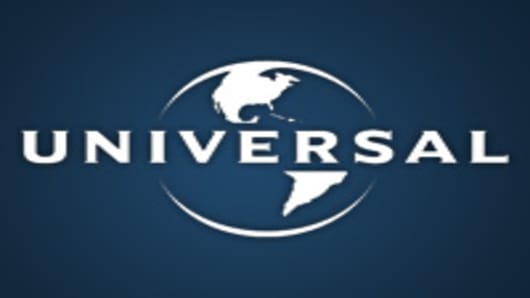Universal Pictures is selling its specialty division, Rogue Pictures to Relativity Media for about $150 million. This news is long in the making; the deal's been in negotiations for months.
The most notable asset Relativity is acquiring is Rogue's library of about 30 films, which can be monetized though DVD sales, TV rights (on the likes of HBO), and now digital distribution. Rogue is known for what Hollywood calls "genre" films, horror films aimed at moviegoers 25 and under, made with a relatively low budget.
The division's valuation was calculated based on the performance of the library so far, and the expectations for upcoming library titles. For instance, "The Strangers" a hit horror film this summer, grossing $53 million at the US box office on a reportedly $9 million budget, should bring in about $20 million from the HBO sale alone.
Another asset Relativity acquires; the roughly 30 projects Rogue has in development, including a sequel to hit "Strangers" and whatever projects emerge from a producing deal with Wes Craven (the "Scream" series) and his production arm. This Friday Rogue opens "The Unborn," from producer Michael Bay.
Here's what Universal gets: a chunk of cash now, plus the rights to release Rogue movies (without having to take the risk of investing in developing or financing them) for a distribution fee of 10 percent of revenues. Relativity is backed by New York-based hedge fund Elliott Associates, which just this September invested another $1 billion into Relativity, giving Relativity about $2 billion n cash on its balance sheet.
The two companies have been working together for years now; in September Relativity struck a deal to effective co-finance Universal's slate through 2015. A few years earlier the two made a deal in which Relativity paid for half the cost of a slate of movies including hits "Mamma Mia!" and money-losers like "The Kingdom."
I think it's remarkable that any such deals are getting done in Hollywood right now. It's certainly a convenient infusion of cash as Universal faces some new costs, including its new distribution deal with Steven Spielberg's DreamWorks . In terms of Relativity's end of the bargain, my only question is about the value of the development slate.
Rogue's president left the studio a few months ago, when these negotiations were heating up, and the company is tiny, with just a handful of execs. Without the production shingle's top dog, and if employees keep leaving, is a development slate worth the same amount without the folks who developed it? We will see!
- Directors, studios sharing economic pressure
GE is the parent company of Universal and CNBC.
Questions? Comments? MediaMoney@cnbc.com



